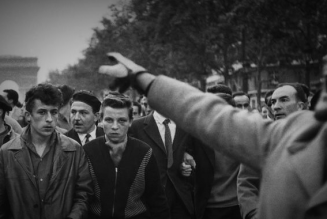ROME – Here are two different standards for establishing what counts as “martyrdom” in the Catholic Church:
- Someone is a martyr if the person or persons who killed them were motivated by religious prejudice or hatred. Think Roman emperors executing early Christians for refusing to sacrifice to pagan gods.
- Someone is a martyr if they risked their life based on religious conviction, regardless of the motives of their killers. Think Archbishop Oscar Romero being assassinated in 1980 for denouncing human rights abuses and defending the poor in El Salvador.
Traditionally, the Church has upheld the first standard. One of the reasons Romero’s canonization cause was held up for decades, in fact, was a sense that his death was “political” rather than genuine martyrdom, because the gunmen who shot him through the heart while saying Mass were likely Catholics themselves and they didn’t kill Romero for his religious beliefs but his political stances.
Recently, however, the Church has been moving towards the second standard, and a decision by Pope Francis on Tuesday marked another step in that journey.
Monday morning Pope Francis received Italian Cardinal Marcello Semeraro, who heads the Vatican’s Congregation for the Causes of Saints, and he authorized formal recognition that a young Italian judge assassinated by the mafia in 1990 was killed in odium fidei, meaning “in hatred of the faith,” which is the traditional standard for martyrdom and clears the way for his beatification even without a recognized miracle.
Rosario Livatino, 37 at the time of his death, will become the first Italian anti-mafia judge to be beatified, following in the footsteps of Father Giuseppe “Pino” Puglisi, the country’s best known anti-mafia priest, who was killed in 1993 and beatified shortly after Pope Francis’s election in 2013. Both men lived and worked in Sicily, legendarily a mafia stronghold.
Of Livatino’s deep religious faith there’s little doubt. He was a regular Mass-goer at St. Dominic’s Church in his Sicilian hometown of Canicatti, and on his way to work was a judge every morning in Agrigento he would stop off to pray at the Church of St. Joseph. At the top of his daily appointment book Livatino would write “STD,” for sub tutela Dio, or “under the protection of God.”
Livatino’s most celebrated phrase also bespoke his religious ardor: “It’s not important that we’re believers,” he said. “It’s important that we’re believable.”
Such was Livatino’s overt faith that mafiosi took to calling him santocchio, a pejorative Italian term referring to someone with exaggerated piety that makes them obstinate and judgmental.
Yet when Livatino’s car was riddled with bullets in September 1990 by assassins from the Stidda, a mafia clan and rival to the Cosa Nostra, it was not really religious prejudice that drove his killers. The Stidda wanted Livatino dead because he’d seized large sums of their cash and arrested senior figures in the organization, and frankly they probably didn’t care whether it was Catholicism or atheism or any other conviction that drove him to it – they just wanted him gone.
Despite that, Pope Francis has now recognized Livatino as a martyr, which, among other things, represents another shift from the persecutor to the persecutee in terms of where the emphasis in terms of motivation lies.
Explaining the decision, Semeraro cited St. Thomas Aquinas to the effect that martyrdom happens not just in odium fidei but also in hatred of the virtue of justice, “which is connected to a willingness to offer one’s life as a witness of Christ.”
Analytically, this shift has consequences for assessing the religious dimension of a wide variety of situations.
Consider the recent prison sentences handed down in Hong Kong for three young leaders of last year’s massive pro-democracy protests. Two of those three are Christians – Joshua Wong, an ardent Evangelical, and Agnes Chow, a Catholic. Both have professed that their Christian faith in innate and God-given human dignity is what fuels their involvement in the protest movement.
Of course, their Christian faith is not the reason Hong Kong’s pro-Beijing regime put them in prison; the Chief Executive of Hong Kong, Carrie Lam, is herself a Catholic, and Christians who stay above the fray generally don’t experience many problems in Hong Kong.
Yet if it’s the motives of the one experiencing persecution, not the one inflicting it, which matter most, then one would have to say that at least for Wong and Chow, this is “religious persecution.” In their own words, they’re sitting in jail cells right now because their faith put them there.
Romero and Puglisi marked early examples of the recognition of the shift from persecutor to persecutee in terms of clergy, and now the Livatino cause extends the same standard to laity. Provisionally, his beatification ceremony is expected to take place in Sicily next spring.
Some may object to this evolution on the grounds that if almost anything can be considered religious persecution, then the term becomes so elastic as to lose its meaning. Certainly there’s a danger here, and examinations of cases such as Livatino’s doubtless will have to involve very careful consideration of how deep and sincere the candidate’s religious convictions really were.
Still, one could argue that the traditional standard always had things the wrong way around. In deciding whether someone merits a halo, arguably the truly relevant question isn’t what was in their hearts of their killers, but what was in their own.
Pope Francis would appear to agree, with Tuesday’s decision on Livatino the latest case in point.
Follow John Allen on Twitter at @JohnLAllenJr.
Join Our Telegram Group : Salvation & Prosperity









